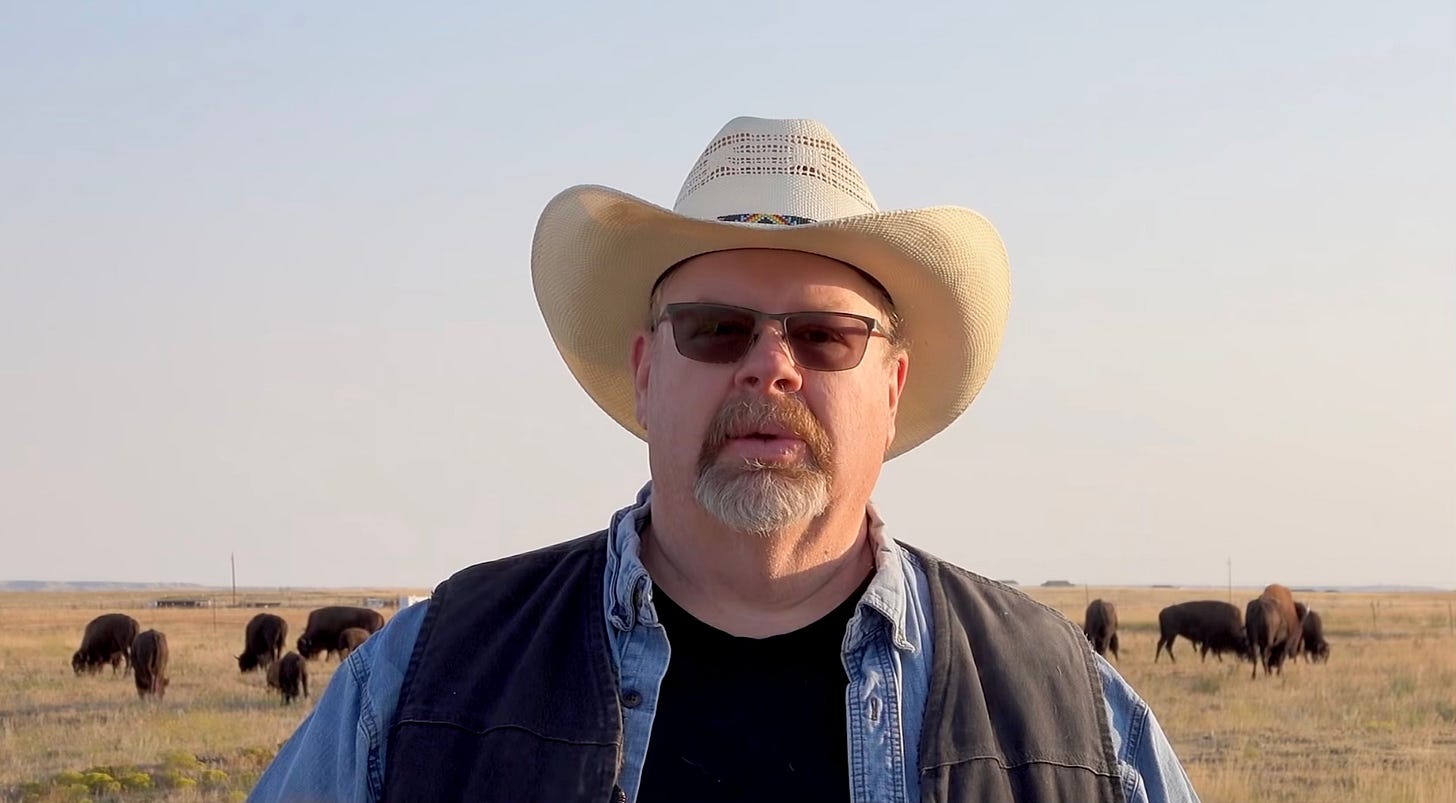Bison, Banned? How Misinformation Threatens America’s Greatest Conservation Story
A Colorado rancher’s ad was shut down for selling ‘extinct’ meat—exposing a dangerous gap between tech, truth, and the future of ethical farming.
In the quiet plains of Carr, Colorado, a small ranch is at the center of a much larger story—one that spans conservation, censorship, and the future of American agriculture. Memphis Ranch, home to a herd of American bison and run by Greg and his wife, is not just raising meat. They're reviving a species and stewarding the land in a way most of us only read about in environmental science textbooks.
But despite their efforts, and despite the fact that bison now number over 500,000 thanks largely to private ranchers—not government programs—they’ve encountered a disturbing modern hurdle: censorship based on ignorance.
When Memphis Ranch attempted to advertise their federally inspected bison meat online, Google shut down their campaign. The reason? Google’s automated system flagged “bison” as an extinct species, lumping the ranch’s sustainable meat business in with illegal wildlife trade like rhino horn and tiger skins. It took multiple appeals and outreach to the National Bison Association before the ad was reinstated.
This is more than a technical glitch. It’s emblematic of a growing divide between those on the ground practicing ethical, environmentally beneficial animal husbandry—and the bureaucratic, algorithmic, and ideological forces increasingly misrepresenting or silencing them.
Conservation in Practice, Not Theory
Let’s be clear: the bison industry is the largest private conservation movement in the U.S. Today’s thriving population of American bison didn’t rebound from near extinction because of public zoos or wildlife preserves. They came back because ranchers found a way to make them economically viable. By selling nutrient-dense, environmentally regenerative bison meat, they’ve created a self-sustaining conservation model that actually works.
Greg’s ranch alone showcases how bison grazing revives fragile prairie ecosystems. Their second stomach allows them to process plant matter and return moisture and nutrients to the soil—critical in dry, arid regions like Colorado’s Front Range. In fact, USGS researchers at the nearby Savory Institute have discovered new forage species sprouting up in these bison-grazed areas, highlighting their ecological role in rejuvenating the land.
When Policy and "Fact Checkers" Go Too Far
What’s shocking is how easily this vital industry can be derailed by misinformation. Whether it’s tech giants labeling bison meat as unethical, or state policies like Colorado’s PAWS initiative—which would effectively shut down ranchers like Greg by imposing unworkable animal space and handling requirements—the disconnect between perception and reality is dangerous.
Activists and policymakers pushing blanket legislation often paint all livestock operations with the same brush, conflating factory farms with small-scale regenerative ranches. But as Greg points out, if bison ranchers are regulated out of existence, who will care for these animals? Who will afford to feed them? Letting them roam free isn’t an option—and claiming to protect a species by destroying the only viable system sustaining it is hypocrisy at its peak.
Why Censorship Matters
At its core, this issue isn’t just about meat, or ads, or bison. It’s about the censorship of truth. When Google equates a conservation-driven ranch with illegal wildlife poaching, it damages not just a business—but public understanding. When social media platforms flag educational videos about agriculture as "misleading" or "cruel," they aren't protecting animals. They’re suppressing voices that are actually defending animal welfare through ethical, sustainable practices.
This is why Meet My Neighbor Productions—a nonprofit producing PBS-style documentaries about farms like Memphis Ranch—matters. It gives voice to the forgotten stewards of our land, those who care deeply for their animals and the environment, and who are too often erased from the national conversation by misinformed gatekeepers.
Support Ranchers. Question the Narrative.
The future of sustainable food, environmental restoration, and even species recovery depends on listening to the people who live and breathe it every day. We must ask: Who benefits when these stories are silenced? And more importantly, what do we lose when we let misinformation shape public policy?
Support your local ranchers. Defend the right to farm. And whenever possible, choose food from producers who treat their animals—and the land—with respect.
Because the real cruelty? It's letting misinformation undo everything these hardworking Americans have built.
Support the documentary series at Meet My Neighbor Productions
Learn more about Memphis Ranch and their bison meat at https://memphisranch.com
Watch the full interview and farm feature on Yanasa TV.



